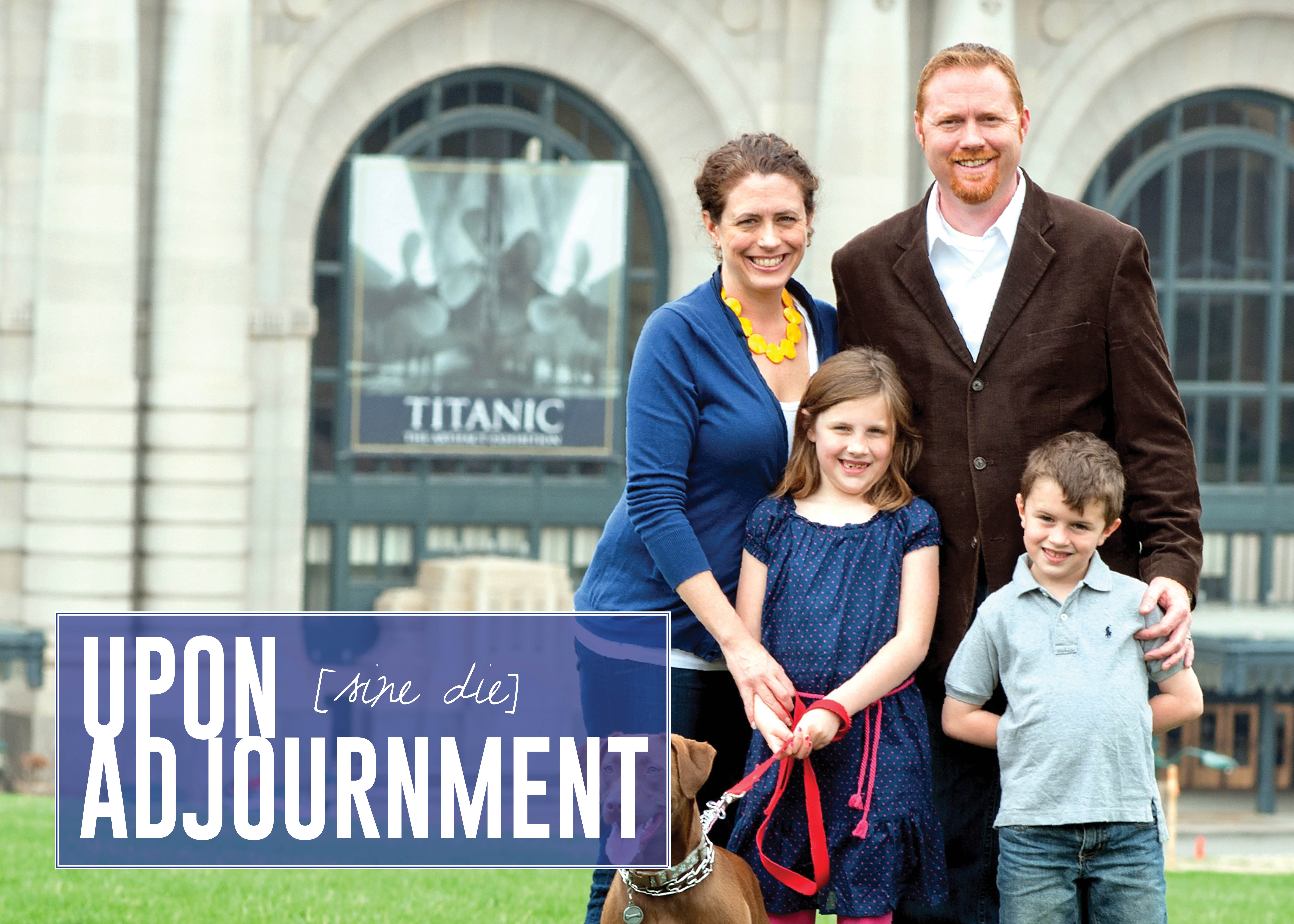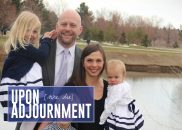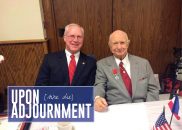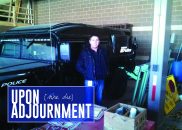Upon Adjournment: Tell us about your education. Have you always been interested in politics?
Senator Jason Holsman: My grandfather decided that he wanted to send me to early childhood and paid for my tuition at Avila Montessori School and that was my first ever introduction to school. I think that those two years are why I’m a senator today. Had it not been for that, I don’t know where I’d be.
I started out at Mizzou in business and at one point took a political ideology course and sort of found that voice of what I was looking for – what I was really interested in. I was fascinated by political philosophy and changed my major from business to political science.
Later, got a call from a friend who had an internship with Kit Bond on the Small Business Committee and he asked if I wanted to come stay with him. So, I packed up my car and drove all the way across the country with two suits and my resume. My first stop was the HR office and they said I could walk around and hand out my resume and look for jobs with my state and anyone else. I was really unsure of myself politically then and ended up stumbling into John Ashcroft’s office.

UA: What has been the biggest hurdle to getting to where you are now?
JH: Two major obstacles, one is money. Fundraising has never been a strong suit for me. I’ve always won with less than my opponents. That, and then overcoming the naysayers, the unbelievers. Every race I’ve run, people didn’t think I could do it. You have to overcome the people who don’t believe in you and you need to have a core group of people who do think you can do it. You have to work harder than people expect.
UA: Do you have any advice to other people looking at getting into public life?
JH: Winners don’t hold grudges – not if you want to win again. You never know when today’s opponent will become tomorrow’s friend.
Cathy Jolly was my predecessor [in the Missouri House of Representatives] who handpicked my opponent and helped them run against me, the next day after I won she calls me up and says, “Oh, I just know you’re gonna be great.” and I said, “Cathy, look I have a feeling we’re going to be great friends, but we’re going to start from a position of honesty. Twelve hours ago you were chilling money and keeping people out of my race and drumming endorsements against me.” She said “You’re right, I did what I could to defeat you. I didn’t get it done and I’m impressed.” She was the first person to call me that day and six years later, she was the first to endorse me when I was running for senate. She is easily the most important non-elected person in the district and was a big asset on my campaign.
I think that had I been vengeful it could have turned out so differently than it did. She became a great friend and one of my closest confidants.
UA: What was your toughest campaign moment?
JH: My first race, I was coming home from a hard day of door knocking and I turned onto my street and my opponent had put two huge signs at the end of my road as I came into my street in my neighbor’s yard. I think at the time he was probably doing it as in intimidation factor, but I drove by the sign and pulled into my driveway and pulled back out and went and knocked another twenty doors. Every day I drove by those signs, I would go back and knock another twenty doors. The first time I saw them, my heart kind of sunk that my neighbors were supporting my opponent and what it did was motivate me to go work harder.
UA: Most triumphant moment in the Senate?
JH: I don’t think it’s happened yet. I think we’ve got a lot of work to do yet, so I would say our greatest moment is yet to come.
UA: What do you want to be remembered for?
JH: Inside the building, I want to be remembered for being someone who is really good at building bridges and solving complicated problems. I want to be remembered for the relationships I’ve built with all walks of this very diverse chamber.
Outside of the building I’d like to be remembered as somebody who worked toward our societal well-being, someone who is a social scientist first and an emotionalist second, someone who looked at the complex challenges that face us and found creative and innovative solutions to address them: renewable energy, urban agriculture, strong public education, preparing our society for continuity of our way of life. If someone asks what I did – I helped prepare our society for ecological sustainability – for our individual sovereignty over state sovereignty.






